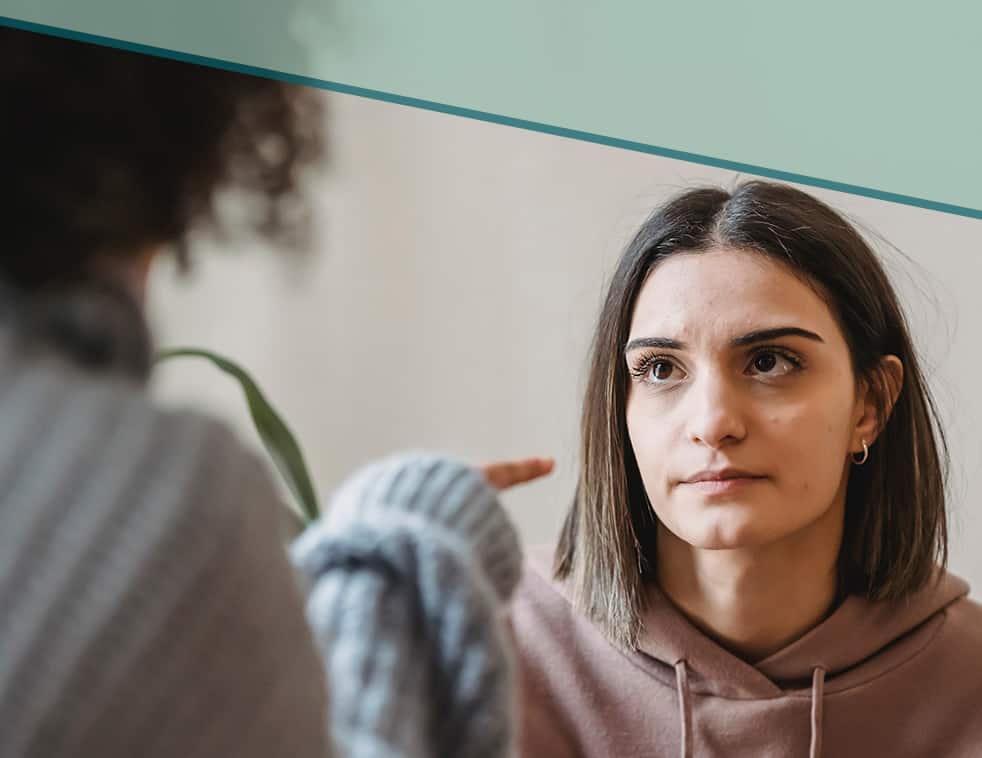Have you ever been told – “You always have to be right!”? There’s likely been at least one time in your life when this has been said to you. And chances are, you’ve said it to someone else. To have to be right seems to be a human issue.
 Have To Be Right!
Have To Be Right!
Does it ever “bug” you that a certain person just always has to be right? Maybe you are that person. If so, does it bother you that you pursue this image of being right – no matter what? And here’s the hard question. Is it even on your radar how it affects others that you have to be right?
You know how it is talking with a “have-to-be-right person.” In those conversations, even arguments, you begin to realize – “Here we are again! They just have to be right!”
Perhaps it’s a group project with multiple, intelligent, creative people. Maybe a business meeting, a community organization, a neighborhood or family gathering. It could even be a friend. But “that person” takes the helm and tries to convince everyone their approach is best.
The topic could be about anything. Finances, cars, property, relatives, politics, religion – to name a few. The scenarios are endless – because – you soon realize it really isn’t about the topic. It’s about the person that has to be right. More examples where “that person” may insist they have to be right:
- Memories of how it happened
- Exact dates
- Whose perspective is right and whose is wrong
- How to spend a vacation trip
- The Bible actually says . . .
- Common public opinion is really . . .
- Which politicians are right
 “That Person!”
“That Person!”
It’s annoying to have a situation deteriorate to a place where a person argues and just won’t let it go. In fact, as we already identified – it ceases to be about the conversation, topic, or plan. For some odd reason, it has become about that other person – again! – who feels they have to be right.
It’s as if their well-being or life-value is somehow connected to being right (in their mind). Some people have even figured out how to always be right in a socially acceptable manner – a “nicey” kind of clever, sugary way.
What Do You Do With That Person?
First Things First
We need to start in the right place. It always starts with “me” whatever side of the issue you are on.
 1. If you are sometimes “that guy,” ask yourself good “inner person” questions:
1. If you are sometimes “that guy,” ask yourself good “inner person” questions:
- What is going on inside me right now that I feel I have to be right?
- Am I listening, or judging?
- Am I open to others’ ideas?
- What threat do I perceive against me?
- Will my projected self-image suffer if I’m not totally right? Why would I think so?
- Is there anger in my heart? If so, why?
- Maybe I should step back and PAUSE for a minute to consider these questions.
2. If you are stuck on the other end with “that guy,” those questions can help you, too. That’s because the tension “that guy” creates develops conflict, irritation, and unrest. It literally makes people bristle. But coming to terms with your inner person helps you know how to respond. You can maintain peace even if “that guy” isn’t at peace. So PAUSE and ask the questions.
 3. Whichever guy you are, managing your heart increases inner peace. It elevates self-confidence, and reinforces the life-value God has already given you. Plus, by willingly standing down, re-evaluating, and making adjustments to your approach, you do three important things:
3. Whichever guy you are, managing your heart increases inner peace. It elevates self-confidence, and reinforces the life-value God has already given you. Plus, by willingly standing down, re-evaluating, and making adjustments to your approach, you do three important things:
- Open the door to personal growth and change.
- Calmly make a confident statement about your value, character, and conduct.
- Others begin to respect you, whether you are “that guy” or the other person in the conversation. (People appreciate the person who takes a step back, and then re-inserts with balanced perspective. They also appreciate when you admit you were out-of-line.)
What About “That Guy“
As far as managing interactions with the other person who always needs to be right, well – it takes a pensive approach to be positive and practical. This approach is a skill good managers learn in order to empower staffs, teams, and departments. It’s a skill critically needed by families, friends, and neighbors, too. Parents need these skills with strong-headed toddlers and overly-confident teens. Really, everyone should figure out how to interact with others who always have to be right.
Here are a few helpful tips to remember when selecting responses to “that guy:”
- Be full of grace, mercy, and kindness.
- Don’t argue – just state facts.
- Be calm and speak respectfully.
- Deal with points that matter and make a difference. Ignore the rest.
- Don’t get pulled into a power struggle.
- It doesn’t matter in most cases that you win. It matters that you practice Christ-like character. It also matters that you are solving the problem.
- Being solution-oriented is better than being right. If you can steer the “gotta-be-right-person” into a productive direction, you can solve the issue together. And you may have won a comrade.
- Ask good questions to clarify issues. Involve “that person” in both questions and answers.
- Know when to step away if the other person will not step into better interaction.
- Be ready to use whatever power you’ve been delegated to bring positive movement and closure to the issue.
That’s a short list on how to interact with another person who just has to be right. But when we feel we just need to be right, a PAUSE helps to look at perspective and managing oneself.
 Look In The Mirror
Look In The Mirror
Do you know why looking in the mirror (looking inside yourself) is best practice when managing the tension of having to be right? Well, simply put –
- It’s because you are the only person you really have control over. Your conduct is “on you.”
- Plus, you need to see what you look like when you engage “that guy” – or when you are “that guy.”
- And finally, if you belong to God, remember you serve Him, not yourself. You represent Him.
- This look helps you pause to pray. Ask God for wisdom, creative ideas, a fresh approach, even a re-boot. Ask Him for courage and peace tactics to solve problems.
In the end, you win if you maintain Christ-like character. And you lose if you go after your own agenda.
Persecution
What about when others persecute you? What if you have humbled yourself and are still judged by the standards others have? How does a person handle being slandered, gossiped about, made a fool to others who don’t know the situation. Even in persecution, it’s best to not get caught in the cycle of “I have to be right!”
This is when it gets challenging to do the right thing and where a price is paid for extreme growth and personal training. You can become skillful at working through difficulties with others – especially if you work to solve the issue without compromising your character.
 An Example Of How To Be Right
An Example Of How To Be Right
How does one maintain peace and joy even under the onslaught of others who judge and criticize? Best responses come from the person who lived His entire life like this. Jesus is a fabulous example of how to live misunderstood – but always right.
You don’t “have to be right” to follow His example. Know why? Because God already sees what’s right. He knows the details. Even more important, He sees and knows your heart. If a person thinks they have to be right, the heart is the best place to begin.
Let’s find some guidelines from Ps. 49:3 to establish and measure good action steps. “My mouth shall speak wisdom; the meditation of my heart shall be understanding.”
- This Scripture is the platform from which you should launch into every issue.
- It’s a decision you make – not something left to chance.
- This position establishes boundaries of what you will and will not participate in.
- Your position is to practice and model Christ-like behaviors.
- Depend on God for wisdom means draw close to Him by faith.
- Consider action steps of understanding (discernment) – so you become a better problem-solver.
Conversely, if you “have to be right,” you are serving self, not God who gave you life and purpose. This conduct means your character will not be Christ-like, but rather serve yourself – and the enemy.
When It’s OK To Have To Be Right
There is one time it is always right to dig in – at the place of surrender to God. Being completely aligned with God helps you think, speak, and act when you deal with “that guy.” In this place, you are always right!
 Application Thoughts and Questions
Application Thoughts and Questions
- Are you “that guy?” Do you have to be right?
- Have you started with yourself to ask good questions? (review First Things First)
- Are you willing to “take a step back” or admit when you are wrong?
- Have you looked in the mirror lately?
- Why not choose to memorize Ps. 49:3 and develop the action steps we explored? (Review Ps. 49:3 and the 6 action steps.)
Visit our website for devotional materials, articles, podcasts, and resources to help grow your faith in God. Pursue noble character and an Alive and Active Life.














